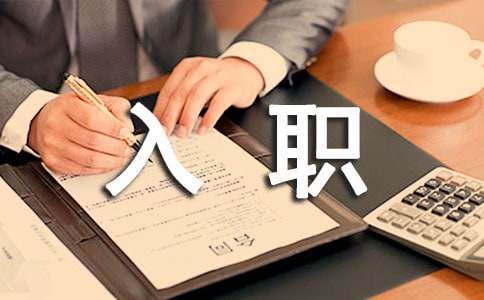90后初入职场那些事儿
一批身为90后(post-90s generation)的大学毕业生将于今年步入职场,一些专家预测这信息一代将为企业带来不小的变化,同时为这些职场新人们提出了一些中肯的建议。

Wang Fengfeng was a graphic design major at the Communication University of China, Nanjing. She quit her job at a state-owned company after a two-month internship.
王凤凤(音译)是来自中国传媒大学南广学院平面设计专业的学生,她在一家国企实习两个月之后,便辞职了。
Despite an attractive salary Wang couldn’t stand being bossed around. Even the color of her stockings and the way she spoke over the phone was prescribed by her manager.
尽管工作待遇很吸引人,但王凤凤受不了整天被呼来唤去。就连袜子的颜色和讲电话的方式都要听从经理的指示。
“I like a more equal or friendly working environment. I would like to contribute my own ideas rather than only being given orders without the right to question them,” said the 22-year-old.
“我喜欢一个更为平等、友善的'工作环境。我希望能够出谋划策,而不仅仅是接受指令,连质疑的权利都没有。”22岁的王凤凤说。
This year the post-90s generation enter the workforce. The Ministry of Education estimates that 6.8 million college graduates will leave campus in July. People are curious to see how smoothly this new generation will adapt to the world of work.
今年,90后们将走进职场。教育部预计,今年7月将有680万高校毕业生离开校园。人们正拭目以待,想看看90后新一代是否能顺利适应职场。
Post-90s workers place more emphasis on “doing a job that they enjoy” than other factors, such as pay and conditions, according to a report by Zhaopin.com conducted last year. The report surveyed 7,261 post-80 and post-90 respondents.
据智联招聘网去年所做的一份报告显示,与薪酬、工作环境等因素相比,职场90后更强调“要做喜欢的工作”。这份报告针对7261名80、90后受访者展开问卷调查。
Post-90s hope to establish a relaxed working relationship on a more equal basis than their predecessors. They also rank personal well-being before seeking any achievement. More than half of the post-90 respondents prefer easygoing, mild-tempered and savvy employers. A surprising 10 percent wish to be “casual buddies” with their supervisors.
与前辈们相比,90后们希望在一种更为平等的基础上营建一种轻松的工作关系。他们同时也将个人幸福看得比追求成绩更为重要。半数以上的90后受访者更倾向于选择随和、温和又精明的雇主。甚至有10%的接受调查者希望与上级建立一种“哥们儿”关系。
Experts say that the well-fed, post-90s generation are children of the Internet era. They are well informed and unconcerned about the basic necessities of life. They have a stronger awareness of “self” and how they relate to the outside world.
专家称90后一代是丰衣足食的一代,是生长在网络时代的一代。他们见多识广,不再为生活的温饱问题而烦恼。他们有更强的自我意识,更加注重与外界的联系。
“They tend to care a great deal about team coordination or management culture in the work scenario,” said Tian Rumi, a senior human resources expert from Career International, a consulting company.
“他们往往非常关心工作情景中的团队合作以及管理文化,”科锐国际咨询公司高级人力资源专家田如蜜如是说。
“They’re also more outspoken about their needs or wants, and like to openly negotiate with their employers.”
“他们可以更加直言不讳地表达出需求和想法,喜欢开诚布公地与老板沟通。”
Guo Youmeng, 22, is a digital media major from Beijing University of Posts and Telecommunications. She says that she would not mind working long hours, but would prefer her supervisor to explain why she has to, such as the urgency of the task. “I feel greatly motivated in this way,” she explained.
22岁的郭友萌(音译)是北京邮电大学数字媒体专业的学生。尽管她表示自己不会介意时间长,但还是希望上级能给出合理解释,比如任务的紧迫性等等。“这样一来,我便会感到无穷动力,”她说。
Most companies embrace the post-90s by tailoring their management styles. Shao Haisheng, an HR director from Ctrip, a leading online travel company, finds post-90s interns full of creative and daring ideas. They are willing to take the initiative, and are highly articulate, which makes for creative exchanges. “Instead of being rigid, we become more tolerant and try to adapt to the needs of each individual employee,” said Shao.
大多数公司选择“量体裁衣”,通过调整管理方法来迎接90后新人的到来。国内领先在线旅行服务公司携程网的人力主管邵海生(音译)认为,90后实习生有很多创新大胆的想法。他们积极主动,又十分善于表达,所以总能带来创新交流。“我们摒弃了古板教条,变得更加包容,尝试着去满足所有雇员的需求。”邵海生说。
In fact, regardless of when you are born there’s an eternal struggle between personality and responsibility, says Wang Boqing, PhD, president of MyCOS Data.
实际上,不管你出生在什么时代,个性与责任之间的斗争是永恒的。麦可思数据有限公司总裁王伯庆博士如是说。
He warns that students need to observe and respect rules, whether in the workplace or the world as a whole. Human society organizes itself around rules. “Before putting forward your own ideas, it’s important that you respect a company’s culture, rules and wisdom,” he advised.
他提醒学生们需要去尊重并遵守相关规则,不论是在职场还是整个世界。这些规则构成了人类社会。“先遵从一个企业的文化、规则和信条,再发表你自己的观点,这是非常重要的,”这是他对学生们的建议。
Hong Chengwen, a professor from Beijing Normal University suggests newbies should not overreach, and should instead absorb skills like a sponge.
北京师范大学教授洪成文建议,职场新人不应好高骛远,要像海绵吸水一样学习技能。
Zhang Zhenhua, from the Asia-Pacific branch of US Morpace market research company in Shanghai, doesn’t appreciate their prevailing idea of “staying within their comfort zone”. This could mean that they have to sacrifice their personal growth.
来自美国摩尔佩斯市场调查公司,上海亚太办公室的张振华(音译)并不赞成90后中盛行的这种“温室里生活”的思想。这可能意味着他们会牺牲掉个人成长的机会。
【90后初入职场那些事儿】相关文章:
90后小生初入职场07-01
初入职场90后拼的是软实力02-22
初入职场90后毕业生为什么频频跳槽03-31
初入职场的那些“坑”千万别跳06-12
初入职场的职场礼仪07-03
90后入职场不问薪水问培训05-14
初入职场的几个诀窍01-12
初入职场必修法则08-01
初入职场的感受心得05-31
